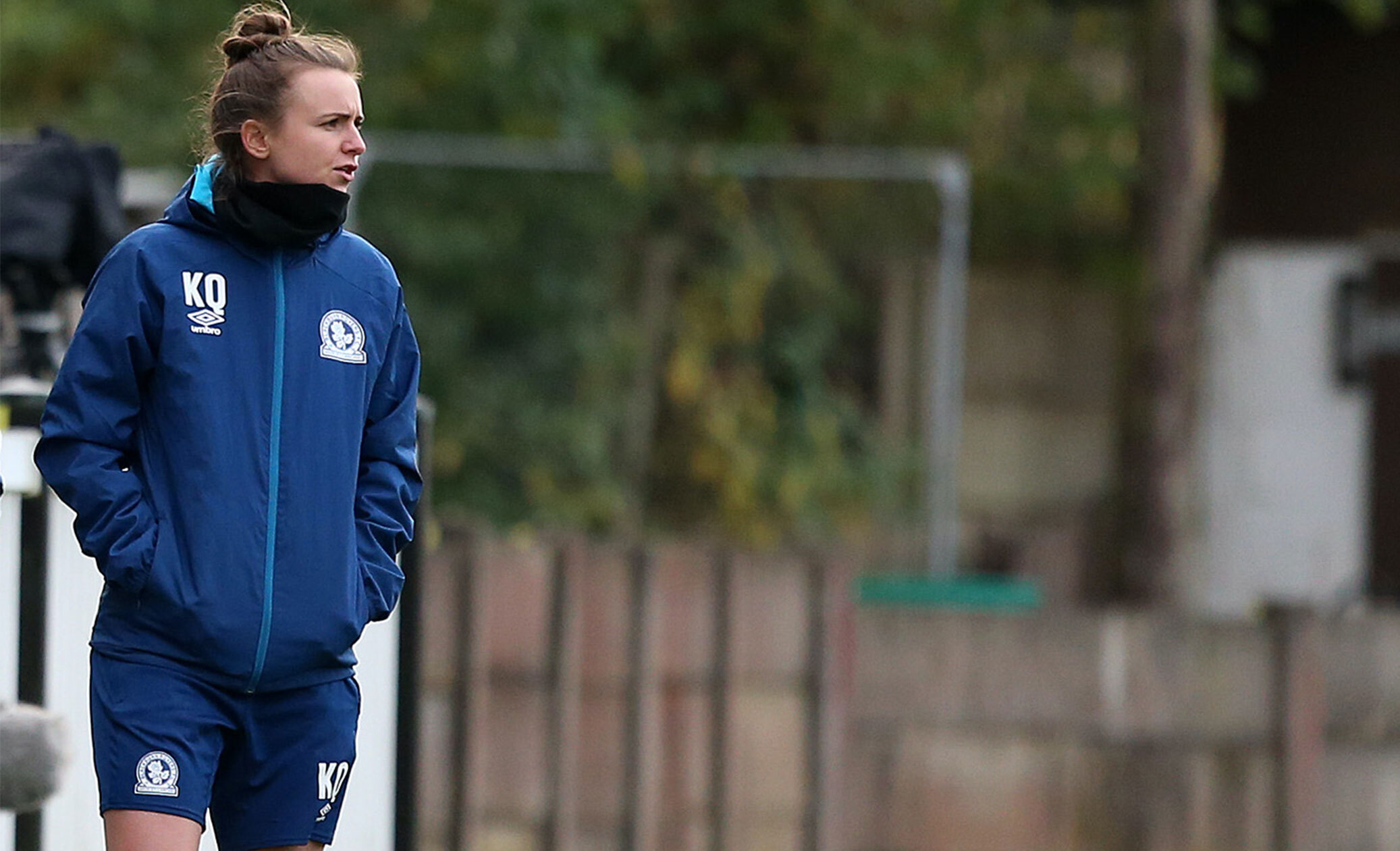Katie Quinlan Interview: Analysis and Innovation in Women’s Football

In part two of this series, learn how Katie’s Blackburn Rovers Ladies team use analysis to compete in the FA Women’s Championship, while also showing how she uses analysis to guide innovation in the women’s game and coach in remote learning situations.
The Blackburn Rovers Ladies team finished a very credible mid table position in their debut 2019-20 FA Women’s Championship season, playing against several teams with Premier League affiliation with much higher budgets, this means Quinlan and her team find huge importance in utilizing all tools to their advantage to gain success.
“Three of the teams that finished above us are professional and the budgets vary massively between each team, so we're constantly having to be very resourceful with what we have on hand,” said Quinlan. “That's how we came about using Hudl and video analysis on a whole. We had to move quickly from spending hours searching for footage on youtube, screen recording, clipping, cropping, annotating clips if we were to compete with professional teams. We had to develop a more efficient workflow and resource the best tools available.

Having utilized advanced video analysis tools while working for the FA as an Elite Coach Mentee, Quinlan is no stranger to new and innovative ways for coaches to deliver their instructions, especially as the modern game in which the level of skill and speed of gameplay is developing year-on-year.
“I think the understanding of the game has changed drastically for myself just using analysis, not only for me but also the staff as well,” said Quinlan. “We have an online library for each of our principles of play, an example of which would be ‘playing forward quickly and securely', which gives us real clarity around how we approach specific moments of the game and how we can distinguish what we want from each of those moments. Video analysis gives you the chance to slow the game down and break it up because the game is getting quicker and quicker.
“You see now on television the use of analysis software programs used by the pundits, where they do a much deeper breakdown of the game than in the past and in the same way we as coaches can understand details a lot more with video. Now we don't just look at the big picture, we have to be able to zoom in and out to find the details. And even off pitch factors - physically, socially, psychologically, we must evaluate how these factors contribute to performance on the pitch.”

During her time working with The Professional Footballers' Association (PFA), Quinlan’s colleagues on FA coach education courses subsequently asked her to support an analysis project during the 2018 FIFA World Cup, which showed the increasing value of analysis tools at international level.
“I used telestration, the kind which you can see Mourinho using in the Amazon documentary, All or Nothing, to provide coach education content for academy scholars,” said Quinlan. “The project identified International trends of which I got to highlight particular movements and correlations, creating databases that best illustrated these observations.”

